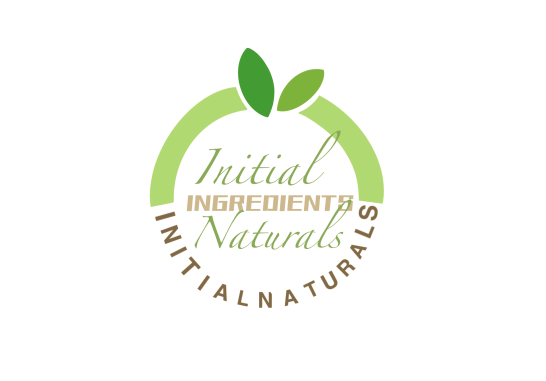Mental health supplements
In 2019, the consumer research firm Hartman Group identified the prevalence of anxiety, depression, fatigue, and stress as motivating factors for individuals to prioritize their mental and emotional health. With the many routine disruptions and additional stressors resulting from the pandemic, including social isolation, supporting mental health has now become even more essential.
These health concerns are reflected in supplement trends. A recent insights report by Coherent Market Insights anticipates that the global brain and mental health supplement market will grow at a rate of 8.5% in the next six years, reaching over $13 million USD in 2027. Popular supplement ingredients in this supplement trends category include:
Acetyl-L-carnitine (ALCAR)
Alpha-glycerophosphocholine (Alpha-GPC)
Citicoline
Docosahexaenoic acid (DHA)
Herbal extracts (e.g., curcumin, ginkgo biloba, ginseng)
Lion’s mane mushroom
Vitamins, particularly B-complex vitamins and vitamins C and E
Organic and natural supplements
Nutritional supplement industry trends have mimicked greater health trends moving towards natural and organic products. In 2020, supplement purchases made up 21% of purchases in the natural and organic product industry, which also includes food, beverages, and natural living products (e.g. aromatherapy, personal hygiene, and cosmetic products).
The organic movement is based on informed consumer awareness about ingredient sourcing and interest in natural ingredients, such as those without genetically modified organisms (non-GMO). Third-party certifications found on product labels, such as USDA Organic and Non-GMO Verified, offer additional assurance that products meet certain criteria for these claims.
Online shopping
In addition to the growth in certain supplement types/categories, trending health news reports that the pandemic has accelerated the transition to purchasing supplements online. (5) The Nutrition Business Journal projects that online supplement sales will double from $5 billion in 2019 to over $10 billion in 2022. (10) Companies and healthcare practitioners supporting their patients will continue to adapt to this behavioral shift, seeking out solutions such as virtual supplement dispensing.
Medicinal mushroom products
Nutrition trends we’ve seen include a growing interest in functional foods and functional ingredients, including medicinal mushrooms.
Nutrition trends
Nutrition trends relate to popular dietary choices that individuals are making, such as seeking personalized nutrition, transparency in food manufacturing, at-home dining, and functional foods.
Personalized nutrition
According to an Innova Market Insights survey, approximately two-thirds of global consumers are seeking products that meet their personal needs, beliefs, and values. This has led to a growing interest in personalized diet plans, supplements tailored to specific nutritional needs, and the use of mobile wellness apps, wearable devices, and testing such as genetic profiling.
Nutrition trends show that interest has grown in food products that support individual lifestyle choices, such as plant-based and keto-friendly. From 2016 to 2020, plant-based claims on products increased by 36% and keto-friendly claims increased by 165%.
Transparency
2020 nutrition and health trends indicate that 60% of individuals would like to learn more about where their food comes from. This demand for transparency, expected to continue into 2021, involves a need for brands to meet consumer interest in clean label, ethical, and environmental stewardship. Clean living health trends include transparency around different factors involved in food production, such as animal/human welfare, sustainable ingredient sourcing, and transparency in the food supply chain.
Dining in
The requirement to socially distance and stay at home has led to changes in the restaurant industry and has encouraged individuals to take up cooking at home more often. Convenient meal delivery kits/cooking starter kits have grown in popularity, and restaurants are adapting to these changing nutrition trends by offering delivery and grocery items, such as sauces and seasoning blends. A 2020 Innova Consumer survey suggests that nearly half of consumers believe restaurant-branded products can help them conveniently obtain the flavors of restaurant meals at home.
Did you know? A growing number of shoppers are buying groceries online. A 2020 consumer survey revealed that 56% of individuals shopped online for groceries in the past 30 days.
To help you organize your meal preparation, download a weekly meal planner.
Functional foods
Another one of 2020’s nutrition trends is the growing interest in functional foods, which are foods and beverages intended to provide benefits beyond supplying nutrients, such as reducing the risk of disease or enhancing a physiological process in the body. A 2020 survey by the firm Hartman Group found that over 55% of adults use a functional food or beverage to prevent or treat a particular condition.
Functional foods include both conventional whole foods, such as probiotic yogurt, as well as foods that have been fortified with particular nutrients or other ingredients for their desired health effects, such as plant-based beverages fortified with vitamin D. Popular functional ingredients, used in both supplements and functional foods, include:
Chinese herbs (e.g., mimosa bark, rehmannia root, schisandra)
Collagen
Medicinal mushrooms (e.g., chaga, lion’s mane, reishi)
Melatonin
Phosphatidylserine
Vitamin D
Zinc
Health and nutrition trends will evolve in 2021 as individuals and the integrative health industry continue to respond to the global pandemic. Keep an eye on these nutritional supplement industry trends and stay informed when it comes to the evidence behind dietary supplements and nutrition trends or fads. From everyone here at Fullscript, we wish you a healthy and safe 2021.wearable devic


